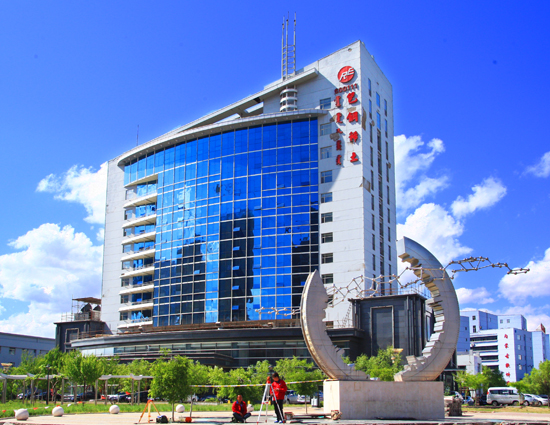Rare earth industry

Baotou Rare Earth High-Tech Industrial Development Zone is the only national-level zone dedicated to the rare earth industry in China. [Photo provided to chinadaily.com.cn]
Baotou city is now committed to transforming itself into a modern industrial base in China -- with remarkable developments in the rare earth sector, along with high-end equipment manufacturing, metallurgy and communications technologies, according to local officials.
With its abundant rare earth resources, Baotou is fast becoming China's leading supplier and R&D center for rare earth, as well as a major center for processing them.
The city is making great strides in the development of its rare earth industry, with the Baotou Rare Earth High-Tech Industrial Development Zone and the Baotou Rare Earth Research and Development Center serving as its center.
The city has successfully hosted 10 sessions of the China Baotou Rare Earth Industry Forum since 2009, boosting its image throughout the industry.
Officials said it plans to further optimize the structure of the rare earth industry and extend the industrial chain further downstream, adding value and injecting new vitality into the high-quality development of the sector in Baotou city.
China’s only e-commerce trading platform for rare earth products, the Baotou Rare Earth Products Exchange, was established as an additional boost to the development of the sector in 2012.
After years of development, Baotou has now gathered more than 10 rare earth research institutions and three professional rare earth research institutes.
It has also gathered together six rare earth-related academician workstations and more than 2,000 rare earth research and development technicians and experts. The city has drafted 160 national rare earth industry standards that account for 60 percent of the national total to date, helping to promote industrial development and accelerate the transformation of the rare earth sector.
In 2017, the Inner Mongolia Rare Earth Functional Materials Innovation Center was jointly established by Beifang Rare Earth Group Technology Co, the Baotou Rare Earth Research Institute and the Baotou Rare Earth R & D Center of the Chinese Academy of Sciences.
The innovation center aims to improve the efficiency of research and development, officials said.
It aims to provide technical evaluations, design inspections, functional verification and other services for rare earth new material companies and downstream application companies -- and accelerate the transformation and commercialization of innovation results by incubating new materials companies.
In 2018, the proportion of new rare earth materials and applied industries increased from 22.4 percent in 2012 to 51.1 percent of all industries in Baotou.
In so doing, Baotou has become one of the three major rare earth new materials bases in China.
In 2020, the registration of the National Rare Earth Functional Materials Innovation Center was completed.
At present, Baotou has an annual production capacity of 420,000 tons of concentrates, 56,000 tons of permanent magnets, 23,000 tons of polishing, 11,000 tons of hydrogen storage, 40,000 tons of catalytic aids and 1.8 million tons of rare earth alloys.
In recent years, the municipal government of Baotou has accelerated the pace of upgrading in its rare earth industry and set up a key 1.5 billion yuan ($213 million) industry investment fund and a 100 million yuan technology innovation fund.
The city has issued a number of policies and measures -- such as the papers: Several Policies on Accelerating the Transformation and Upgrade of the Rare Earth Industry, Ten policies on the Rare Earth Industry, Ten Policies on the Science and Technology Industry and Ten Policies on Talent Recruitment. It has also promoted the construction of a rare earth new materials industrial park.
So far, the core 20 square kilometer area of the industrial park has basically been completed. It has been listed as an autonomous region-level industrial park and officials said it is striving to become a national industrial park.
The industrial park has established five industrial chains for rare earth permanent magnets, hydrogen storage, catalysis, polishing and alloys, forming a complete industrial system.
